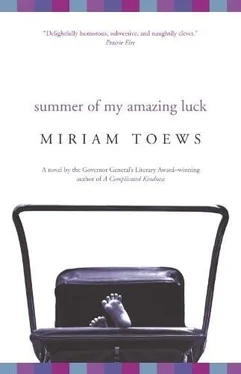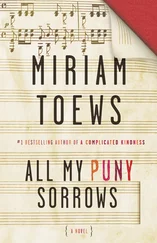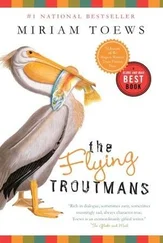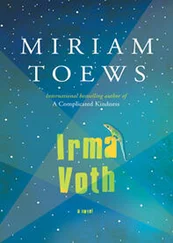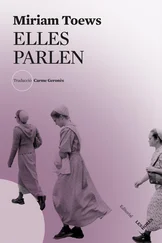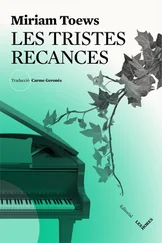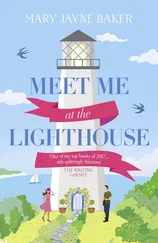Before I turned eighteen, my dad had to support me or I would have been made a ward of Child and Family Services and they’d in theory have to take care of Dill’s and my needs. My dad preferred to give me money than to have me go public, so to speak, because the idea of me as a ward of Children’s Aid horrified him. But I know he was somewhat consoled by the fact that I was only a single mother and not a drug addict or a prostitute. I don’t think it occurred to him that a person could be all three. So from the day Dill was born until the day I turned eighteen, which was one month before I moved into Half-a-Life, my father gave me four hundred and fifty bucks a month. I didn’t see him, I just received his cheques in the mail. At that time I was living in a different dive, but it was a dive for all kinds of people, not only women and kids.
When I turned eighteen he gave me a book for my birthday. It was a thick historical romance epic novel with a picture of a man and woman on the front, the wind blowing their hair back and the man towering over the woman who had her head tilted backwards and her mouth open and eyes closed, like an eighteenth century Cosmo cover girl, and the man looked as if he was strangling her. On the inside cover he had written, “Best wishes on your eighteenth birthday Lucy; from your dad.” I kept the book just for that.
When I was a kid I scratched my name into the wet concrete that was put in down the street. That was long before they had guards to watch over it as it dried. As a matter of fact, Teresa had that job once for a while. She got it through welfare: they figured it was something she was qualified to do. Anyway, I scratched my name, Lucy Van Alstyne, into the sidewalk that my dad walked up and down four times a day for thirty years. To the university, back for lunch, back to the U and home again. At first I was nervous, wondering what he’d say. Then I forgot about it. He didn’t mention it once, not once. He still walks that way and back and there and back, and I wonder what he thinks when he sees my childish scrawl in the cement. Does he wonder what happened to that kid? Is he ashamed? Does he smile to himself? Guess I’ll never know.
Anyway, I was on my way to my second dole appointment. I had to wake Dill up in the middle of his nap to make it on time. He was not happy about that. I was supposed to bring proof of all sorts of things, photocopies of this and that, and my appointment slip. I stuffed all of it into a plastic Safeway bag. (In Half-a-Life just about everyone carries their stuff in plastic grocery bags: you can put half-eaten chocolate bars and wet diapers and washcloths in them.) I got Dill into his little pink rain jacket, passed on to me from Lish, and carried him and the stroller and the bag down the stairs to the front entrance. It was pouring. You can’t miss a welfare appointment. If you do you will not get any money and your future’s at stake. If you can call a future on welfare at stake. And you have to wait until they have another opening. Some of the workers will insist on knowing the reason why you can’t make it, and ask for written proof to back it up and make sure it was a damn good reason. When Sarah’s sister died, she had to bring a photocopy of the death certificate to the dole because the funeral fell on the same day as her appointment. After a few months on City welfare single mothers get bumped over to Provincial welfare, which means that they think you’re a lifer and good for nothing else. Then you get visits only about twice a year and your cheque in the mail every month. It’s like a graduation. In fact Lish was telling me about Provincial parties some of the women in Half-a-Life had. They’d celebrate, usually with tequila, because once you were in the hole (called that because they just about forget about you), life was much easier. For some reason everyone in this block drinks tequila whenever they’re on a tear. I hate it myself and I worry about it seeping into my breast milk and getting Dill drunk. But I was still on City.
To get to the dole office, I had to walk for about twenty minutes. Half-a-Life wasn’t too far away. Both were in the Core, the centre of the city. Dill’s umbrella stroller was falling apart. One of the wheels kept coming off and every ten yards or so I’d have to stop and kick it back on. Or I’d have to tip the stroller a bit so it was only riding on three wheels, but that got tiring fast. The rain was pissing down on us. Dill was crying and then made himself puke by sticking the string of his hood too far down his throat. Cars whizzed past two feet away and splashed us all the way to the front doors of the dole. A guy on a mountain bike wearing some Gore-Tex jacket and cut-offs over long johns rode on the sidewalk beside me for a while with a big ecstatic grin on his face as though he had just spent a year in the Sahara.
“Isn’t it great?” he puffed.
“What?” I said, removing the string from Dill’s mouth.
“The rain, it’s amazing. It’s like a great equalizer, you know?” It’s funny how some people just start talking to you when they see you have a kid.
“Oh yeah, for sure,”
I hated Gore-Tex Guy.
“Well, take her easy,” he said as he wheeled away, probably on his way to some philosophy or film studies course. Even with the plastic Safeway bag, all my proofs and papers and Dill’s extra diapers were soaking wet. Dill had kicked off one of his yellow boots and I hadn’t noticed. It took me about fifteen minutes just to get in through the bloody doors of the dole office. There were about five guys standing around in the lobby all staring at me and nobody did anything to help. At one point I had pushed the front of the stroller in and the door came swinging back shoving one of the curvy handles of the stroller into my stomach. Eventually I got Dill and the stroller and myself into the building. Water was dripping off the end of my nose. The rain had made the vomit on Dill’s jacket runny and it was sliding down the shiny plastic onto his lap. He was very intrigued with it and moved one chubby index finger around in circles through the puke.
I asked the secretary, “Can I leave my stroller in the lobby?”
“No, you can’t.”
“Where can I put it?”
“I don’t know.”
“Most people don’t bring ’em.”
“Well, I did.”
“I’m just saying most people don’t.”
Getting past the receptionist into the holding tank/waiting area was never pleasant. I shook the water out of the stroller in front of her. I didn’t care because she was only the secretary. She wasn’t the one giving me the money
Some guy with a black eye and fresh blood on his cheek said he could watch the stroller for me. Like I was born yesterday. To get into the bigger waiting area I had to follow one of three lines painted on the floor. Yellow, Red, or Blue. Which line you followed all depended on how long you had been on the dole. Following a colour is easier than following signs, for people who can’t read. The receptionist glanced at my wet appointment slip.
“Red line.”
“Thank you ever so much.”
I started off down the red line. The wheel on Dill’s stroller fell off. I stuffed it into my Safeway bag full of sidewalk muck and sand. I reminded myself, the main thing to remember when you walk into the waiting room is not to look at anybody. That’s only an invitation for boring conversations and hard-luck stories that can go on for two or three hours. The thing to do is just find a seat and sit and look tough. And also remember that these people aren’t necessarily as pathetic as they look. Or they’re far more pathetic than they look. Either way, don’t talk to anybody. I sat down holding Dill on my lap and shaking things in front of his face like keys and the stroller wheel. And I thought of Gore-Tex Guy beaming with delight in his cultural anthropology class at the wonder of it all. The old guy next to me appeared to be having some kind of asthma attack, he kept smacking his shiny lips together after every gasp and hack. A woman said “Hi baby” to Dill. She offered him a nickel.
Читать дальше
